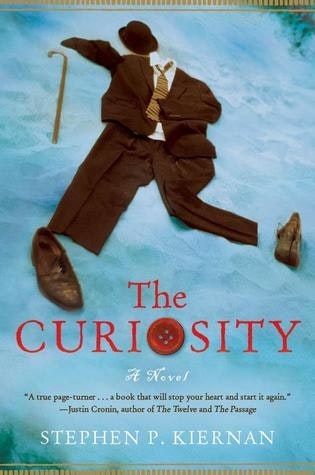The Curiosity

The book is narrated by four voices: Kate Philo, Jeremiah Rice, Daniel Dixon, and Erastus Carthage. What do these alternating viewpoints bring to the story? What do we learn about each of these characters’ motivations and who they are?
If it were possible to reanimate life, should we? What are the ethical questions involved in doing so? If you are a religious believer, are these scientists replacing God? Were the protestors justified in their actions? What might Erastus have done to neutralize their influence? A staff physician with the project comments that “what we do today will render the creation myth obsolete.” Is he correct?
Describe each of the four main characters. Would you call Erastus ethical? What about Kate? Do you think Daniel’s behavior is fairly typical for a journalist? Would the Lazarus Project have been better served with a different media voice? How might they have made it more successful in the eyes of the public?
The first protestors carry signs that say, “Respect the Dead.” What does it mean to respect the dead? How far should we take this --- ban scientific research with corpses? Outlaw cremation?
Think about Kate Why is she a scientist? What rewards does science offer her? Talk about her relationship with her sister. Why does she defy her sister’s challenge for prestige? At the end of the book, is Kate’s choice a step down, or has she finally found the right place for herself? Is she content, or do you think she’s happy? Will she ever find happiness?
Carthage believes his project is not only changing our definition of mortality, but that it is “saving humanity.” What is the rational for his thinking? Imagine a world where no one dies. What kind of place would it be? If you could be brought back from the dead would you want to be?
Talk about the relationship between Kate and Jeremiah. What attracts them to each other? What do they each learn from the other --- about themselves and about life? Do you agree with Kate’s actions? Should she have left Jeremiah in the lab? How might the outcome of the story been different if she had? She and Jeremiah never consummated their love. Should they have? Is love complete without sex?
Explain the book’s title. Do you think it is fitting for the story?
How does curiosity propel Kate, Erastus, Daniel, and Jeremiah? How much were they driven by curiosity and how much by ambition? Curiosity has led to numerous breakthroughs in human history. Yet can curiosity be a negative influence as well? Explain.
Compare the Lazarus Project experiments with those conducted by the early scientists who helped inspire Mary Shelley’s classic novel, Frankenstein. Early experiments in the study of anatomy --- cutting up bodies, and studying them --- were considered to be abominable acts. Though we live in the twenty-first century, are we that different in our attitudes to our ancestors?
When he first awakens, what are Jeremiah’s assessments of modern Americans? Is there truth in his observations? Did any of his insights particularly resonate with you? What might he have missed --- what would you have shown him or introduced him to? If you have not seen your hometown for a long time, how might you react to visiting it once again?
What does being reborn offer Jeremiah? What is it about Kate that makes him trust her from the moment he is sentient?
Contrast Jeremiah’s life a century ago with his new life today. What have we as a society lost from his time, and what have we gained? Where does the author stand, in your opinion?
Pretend that you are Jeremiah. How would you see the world around you? Describe what you see? Would you be excited? Terrified? Eager to explore and conquer?
How is he treated in the lab? Is he like a zoo animal on display? Why doesn’t Erastus treat him better? Early in the novel, Erastus says that, “once the discovery occurs, science is mostly theater.” Explain how science is “theater.” Do you agree with his thinking?
